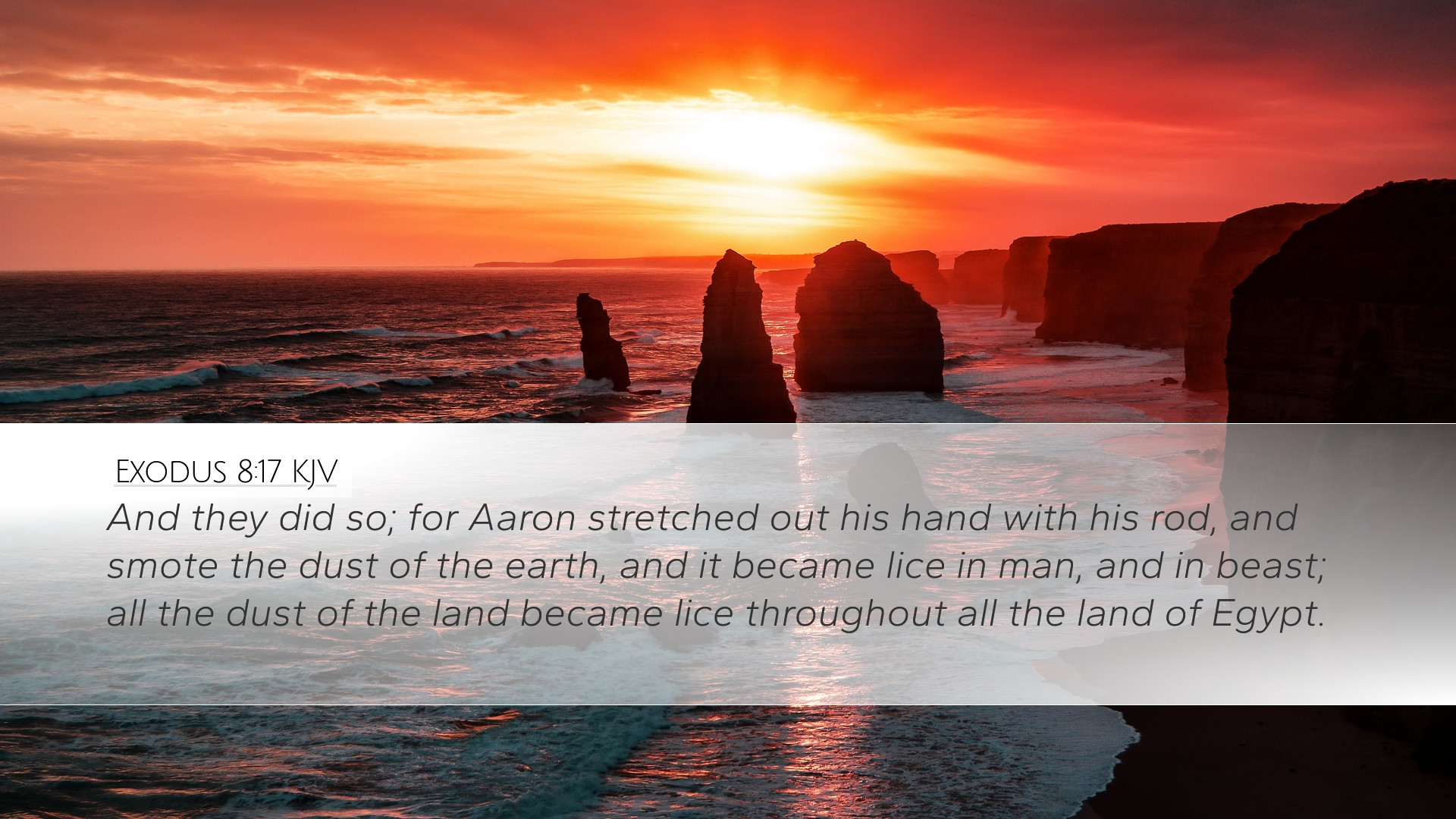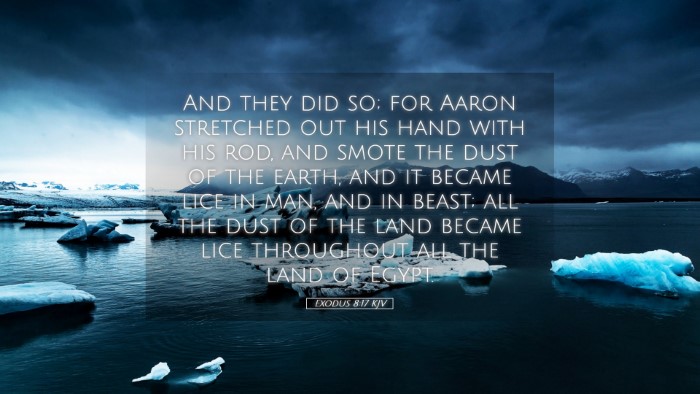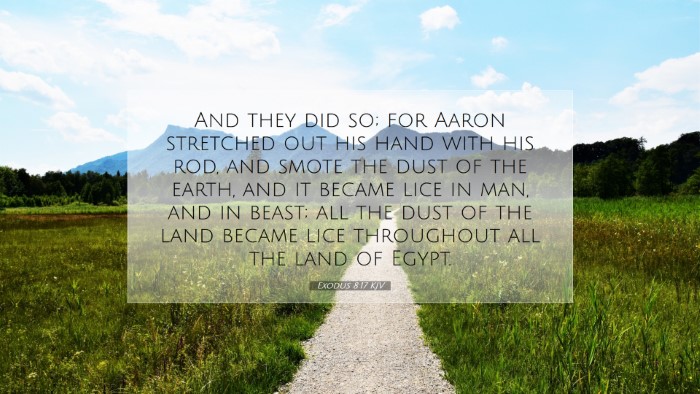Exodus 8:17 Commentary
Verse Reference: Exodus 8:17
Text: "And they did so; for Aaron stretched out his hand with his rod, and smote the dust of the earth, and it became lice in man, and in beast: all the dust of the land became lice throughout all the land of Egypt."
Overview
The verse marks the second plague of Egypt as documented in the Exodus narrative, where Aaron, at God’s command, strikes the dust of the earth resulting in the transformation of dust into lice, affecting both man and beast. This plague signifies God's power over nature and the futility of Pharaoh's magicians who could not replicate this miracle.
Commentary Insights
-
Matthew Henry:
Henry emphasizes the significance of this plague in that it demonstrates God's sovereignty over all creation. The act of turning dust to lice signifies not just a physical affliction but also a spiritual indictment against the false gods of Egypt which were often associated with the earth and agriculture.
-
Albert Barnes:
Barnes notes that the plague of lice represents a direct challenge to the magicians of Pharaoh who could not produce lice by their incantations. This incapacity illustrates that the god of Israel operates beyond human ability and magic, as the sorcerers groaned, declaring, “This is the finger of God,” thus revealing the divine source of the plagues.
-
Adam Clarke:
Clarke provides a detailed exegesis on the Hebrew word for lice, suggesting that it may refer to a range of small buzzing insects which would create immense discomfort. He suggests that the consistent attribute of the plagues reveals that not only are the Egyptians afflicted, but this also serves as a call for Israel to observe God’s might, ultimately leading to their redemption.
Theological Implications
This verse and the miraculous event it describes carry profound theological implications. It serves as a testament to God's authority and His willingness to intervene in human affairs to deliver His people. The inability of Pharaoh’s magicians further cements the idea that while man may try to replicate God's creation, he ultimately falls short when faced with divine power.
Historical Context
The historical and cultural context of ‘lice’ serves to underline the significance of cleanliness and purity in ancient Egypt. Such pests were not merely physical nuisances but represented deeper issues of ritual purity. This challenge to Pharaoh and his culture demonstrates God's intention to disrupt the status quo of Egypt, emphasizing His holiness and the call for the Egyptians, as well as His people, to be purified.
Application for Today
For pastors and theologians, the narrative challenges modern readers to consider the areas in which they may be resistant to God’s sovereignty. Just as the Egyptians faced plagues as signs of God's power, members of contemporary congregations can recognize the various “plagues” in their lives that may indicate God’s invitation to submit and acknowledge His lordship.
Concluding Reflections
Exodus 8:17 represents much more than a historical account of plagues; it serves as a reminder of God's unyielding power and supreme authority. Each action taken by Aaron and each outcome serves to call both the Egyptian nation and the Israelites into a deeper relationship with their Creator, reinforcing the importance of obedience and faith in the face of trials. This scripture holds a timeless appeal for spiritual leaders and scholars as they seek to understand the nature of God and His persistent call in a world full of distractions and challenges.


